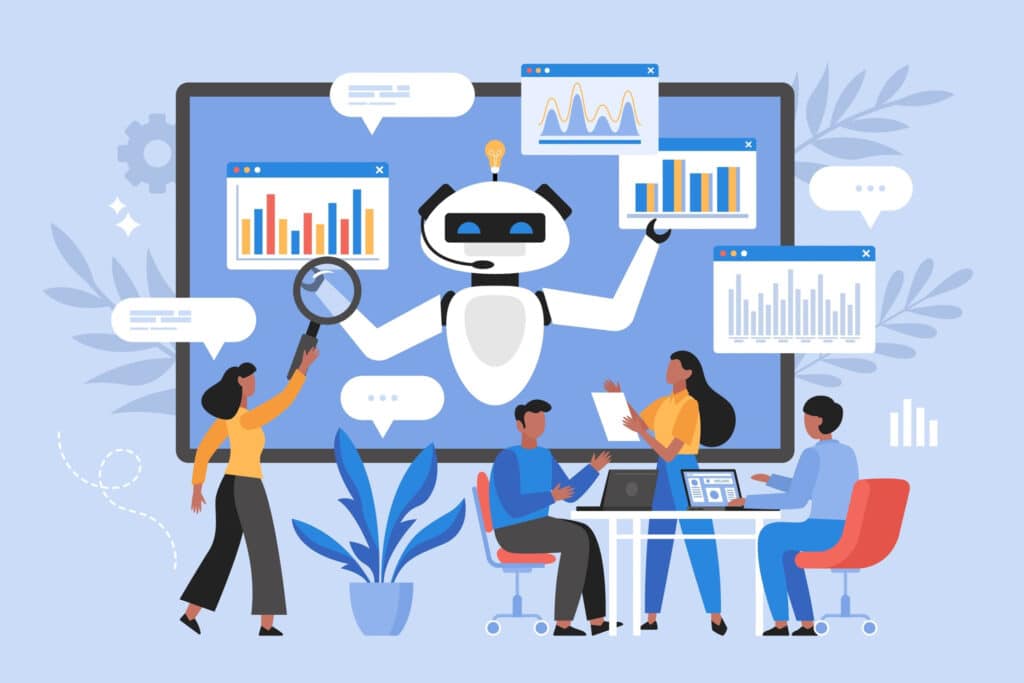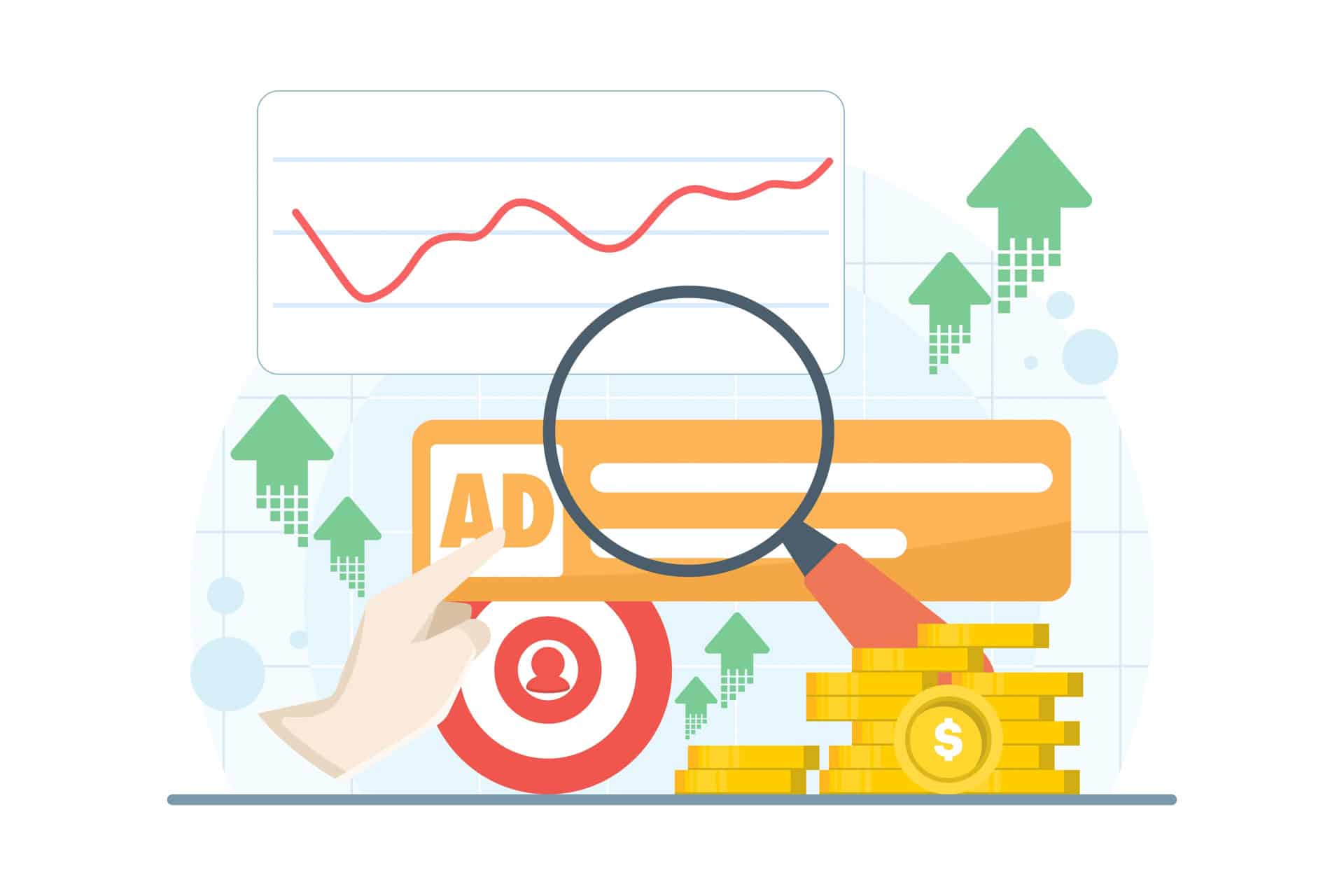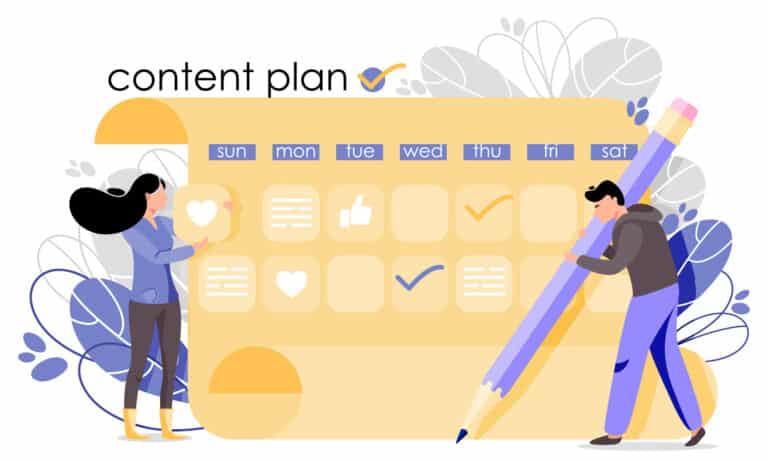AI (artificial intelligence) has been transforming the digital marketing industry, and digital agencies are experiencing this firsthand. Although many questions are still open about how and where AI can help – and harm – AI has been helping agencies to improve efficiency in their work and leave more room for creative strategy.
Today, we will take a look at some of the things that AI has been changing for the marketing industry and for digital marketing agencies and departments specifically.
What is Artificial Intelligence (AI)?
Artificial Intelligence (AI) enables machines and computers to perform tasks that normally would require human intelligence. Common examples that may come to mind when you think of AI include picture recognition, self-driving cars, robots, and of course, ChatGPT.
Thanks to AI technology in the digital marketing space, some processes are becoming more efficient. Users can now employ AI tools to help run effective campaigns that can respond to real-time auction factors. AI also now can monitor the data you receive from these campaigns and use the information to suggest actions to make your campaign more effective. AI is a rapidly evolving area and a topic of much legal and social controversy.
AI Can Help Creative Work
We’ve all experienced a creative block at some point in our lives. Whether it is trouble designing a graphic or lacking the inspiration to come up with a snappy title, AI can help you get the creative juices flowing. Let’s take an example: the popular, simple graphics tool Canva has a new feature called Magic Studio.
Magic Studio is a new AI tool which helps users create what they desire using the powerful tools it provides with AI technology. Not sure what graphic you want to use? Simply describe what you would like to see and let AI give you a starting point. Need to swap formats or dimensions? With a click of a button, it is all done for you!
But what does this all mean? Efficiency. With the power of AI, digital marketers can be more efficient with creative work and less prone to getting stuck during the process.
ChatGPT: A Jack-Of-All Trades
If you haven’t been living under a rock, then you will know of the crazy phenomenon that is ChatGPT. Just in case you have, though, ChatGPT is an artificial intelligence (AI) chatbot that uses natural language processing to create humanlike conversational dialogue. The language model can respond to questions and compose various types of written content.
ChatGPT is versatile and can also be used for much more than just a conversation, including drafting emails, solving math problems, writing articles, assisting with keyword research for SEO, writing computer code and much more. These obviously all have the potential to be huge timesavers. ChatGPT can handle routine and repetitive tasks, which allows you to focus on the more complex tasks.
But what are the pitfalls of using ChatGPT? ChatGPT does not always provide the most accurate results. It’s been known to ‘hallucinate’ information (an AI term used when a language model creates information out of thin air, based essentially on what it thinks sounds good), offers risks of plagiarism, has bias issues (because its sources, aka human-created content, are biased), and occasionally just goes haywire.
For this reason, we would suggest asking the question, taking the answer that it gives you, and then have a look through it to check for accuracy, make your own changes and ensure the output is solid.
We suggest checking our blog for more on ChatGPT and whether it can be used for content writing here.
The Pros and Cons of AI
Let’s break down the pros and cons of AI as a whole.
Pros:
Speed & Efficiency: AI can, without a doubt, offer a lot of time saved. AI tools can also quickly refresh you creatively if you are stuck for ideas or don’t know where to start. This can help you to invest your time where it matters most.
Cost Savings: AI-powered tools can also help businesses save money by automating tasks that would otherwise cost you more to hire staff or outsourcing work. You might have noticed in most supermarkets there is self-checkout tills now, lowering the number of staff needed behind the tills.
Improved Targeting: AI can quickly analyse customer data and behaviour to help digital marketers improve the effectiveness of campaigns. This helps businesses to maximize their ROI (return on investment) by allocating their resources more efficiently.
Cons:
Content Quality & Accuracy: As we noted above for ChatGPT, AI can hallucinate. This is true of all large language models. This is why we suggest using these types of tools only as a starting point and then making changes.
Lack of Human Touch: As mentioned at the start of this blog, we must remember that these are machines learning to act like us humans, and they’re still certainly lacking in applying emotion and creativity to the task at hand. They can often do an adequate job, but you will notice that it sounds very un-lifelike and is missing that flair that humans have.
Becoming Overly Dependent on Automation: You might have heard the saying that too much of anything can be bad. Unfortunately, this also holds true with AI. While it’s great to use it here and there to help you out, don’t get carried away with it. If you become too dependent on AI, your business will not stand out at all against the rest as AI will be generating everything for you, which goes back to the second point of lacking the human touch, the creativity, and the flair that humans have, and AI does not.
Conclusion
AI is having a huge impact in digital marketing – but what should you take from this? While AI may seem enticing to use everywhere in your business, we recommend using it to help you out and as more of a guide to start you.
Remember that while you won’t be the only business using AI, there is only one of you and only you can create something differently than anyone else. If you would to get in touch with us for any digital marketing services we provide, please do not hesitate to contact us today.





